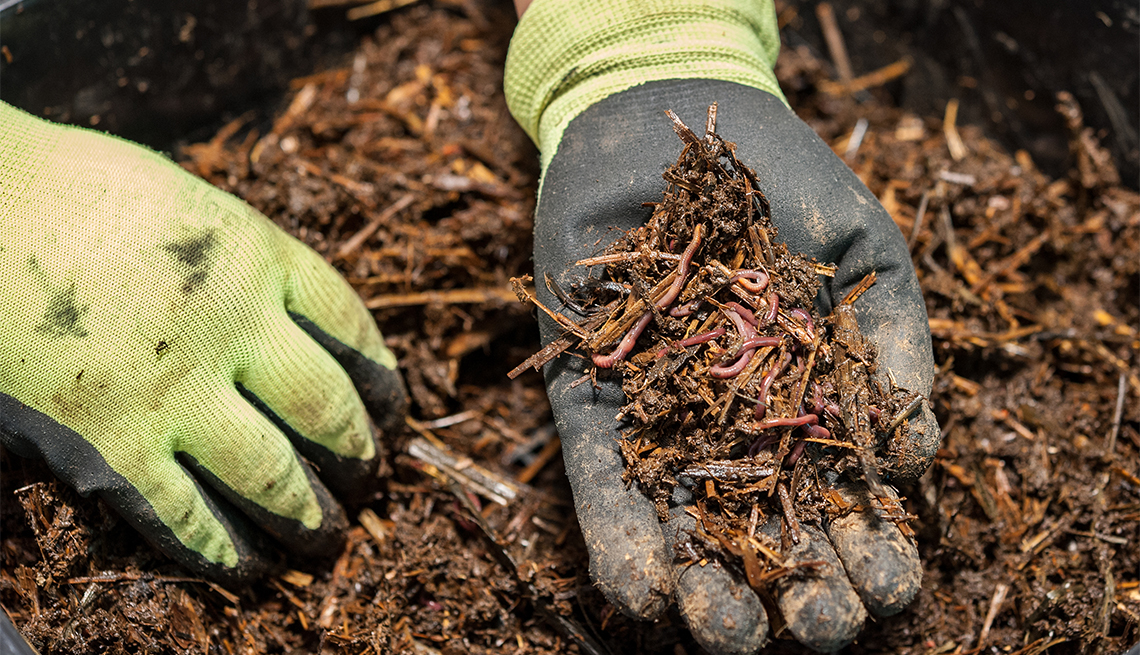
- Select a language for the TTS:
- UK English Female
- UK English Male
- US English Female
- US English Male
- Australian Female
- Australian Male
- Language selected: (auto detect) - EN
Play all audios:
Barklow uses a stacking system of several bins with screens on the bottom. She can move the bins of finished compost to the top and put food in lower bins, letting the worms migrate. 2. FIND
THE PERFECT LOCATION Greg Schultz, main steward at the Thomas Street Community Garden in Chicago, recommends keeping worms in the basement where temperatures are steady. “Worms
shouldn't be kept outside. The temperature range gets a little too hot in summer and too cold in winter,” he says. If you don't have a basement, look for a place that's cool
and dark with few temperature fluctuations, such as under a kitchen sink, says Rick Carr, farm director and compost specialist for Rodale Institute. Barklow keeps them in her garage, which
is heated and air conditioned to keep the air temperature stable. 3. LEARN ABOUT CARE AND FEEDING Start by feeding worms a cup or two of chopped up raw fruit and vegetable scraps buried
under the bedding in one quarter of the bin. Coffee grounds (including the filter) are also good, but avoid meat and dairy, along with citrus, which is too acidic, says Angima. Experts say
you can feed worms weekly, but check to make sure they ate at least half of their previous meal to avoid overfeeding. Put new scraps in another quarter to encourage migration from finished
compost. Ann Barklow says worms bring vitality to her clay soil. courtesy of Ann Barklow 4. HARVEST YOUR COMPOST Worms create useable compost in three to four months. When the bin is full,
dump it into a pile on a tarp or plastic sheeting and scrape off the top layer, Schultz says. The worms will migrate to the center as they are sensitive to light. Once the pile is reduced to
mostly just worms, put in fresh bedding and return them to the bin. If a few get into the garden with the worm compost that's OK, Carr says. Hargins recommends incorporating worm
compost into the ground, targeting the plant's roots, rather than spread at the surface. “Put it in the spots you want to plant and cover it with mulch so it stays moist and allows the
microbial activity to get into the soil,” Hargins says. 5. SPOT TROUBLE IN WORM PARADISE A healthy worm bin smells like the earth, Barklow says, and off odors are a sign of problems. Common
issues include too much or too little moisture. Add more paper if the bin is too wet and a little water if it's too dry. And it's OK if you make mistakes. “ You don't become a
master composter,” Carr says, “without killing a few thousand worms."








